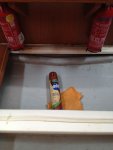coopec
N/A
There are several types of marine wire including un-tinned cable.
Common Types of Marine Wire-Cable
https://seamarinecable.com/haberdetay/common-types-of-marine-wire-cable.html
Common Types of Marine Wire-Cable
https://seamarinecable.com/haberdetay/common-types-of-marine-wire-cable.html



